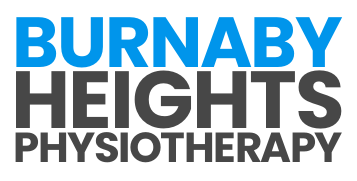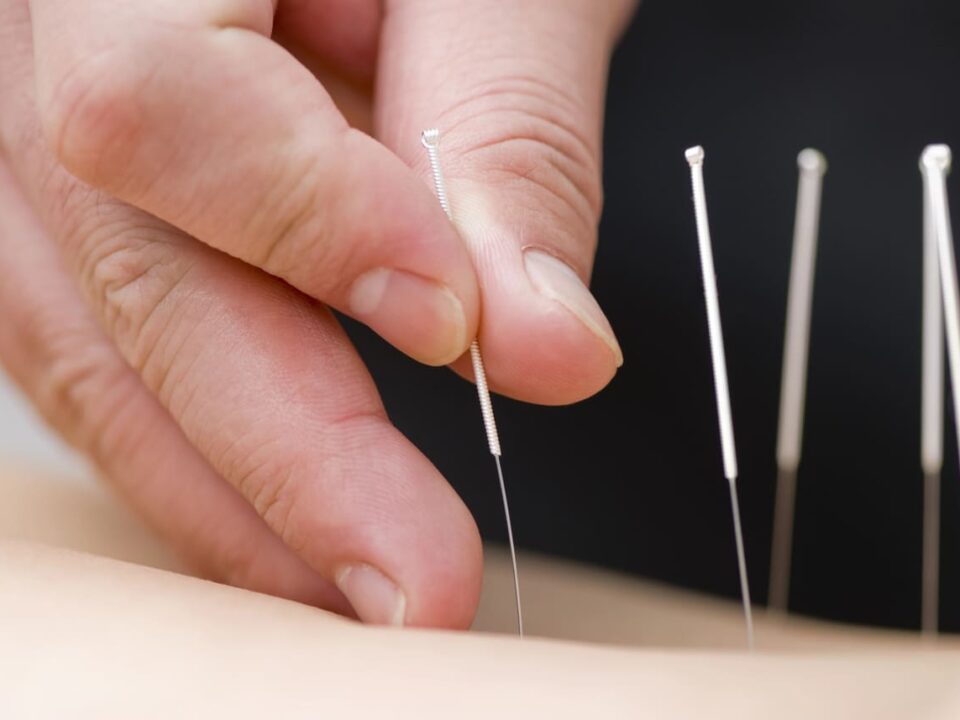
Optimized Movement and Injury Prevention Through Physiotherapy
December 16, 2024
Your Guide to Recovery: How Physiotherapy Supports Post-Surgical Healing
January 10, 2025Acupuncture is an ancient practice rooted in traditional Chinese medicine that has gained widespread recognition for its effectiveness in improving physical and emotional well-being. By stimulating specific points on the body with fine, sterile needles, acupuncture works to restore balance, alleviate discomfort, and promote natural healing. Whether you’re seeking relief from chronic pain, managing stress, or exploring holistic approaches to health, acupuncture offers a safe and natural way to address a variety of conditions.
Understanding Acupuncture and How It Works
Acupuncture is a traditional Chinese medicine practice that involves inserting thin, sterile needles into specific points on the body to stimulate energy flow, known as “qi” (pronounced “chee”). The goal is to restore balance, alleviate symptoms, and promote natural healing.
How acupuncture works:
- Stimulating Nerve Endings: Acupuncture needles stimulate nerve endings, encouraging the release of neurotransmitters and endorphins that help reduce pain and inflammation.
- Improving Circulation: Enhanced blood flow to targeted areas promotes healing and reduces tension.
- Balancing Energy: Acupuncture is believed to restore balance to the body’s energy pathways, addressing underlying imbalances that may contribute to symptoms.
Modern science supports acupuncture’s effectiveness for various health concerns, with many people reporting significant relief after treatment.
Pain Relief: The Benefits of Acupuncture
Acupuncture is widely regarded as an effective treatment for managing pain. It is often used to address conditions such as:
- Chronic Back Pain: Acupuncture can reduce inflammation and improve mobility in individuals suffering from lower back pain.
- Neck and Shoulder Pain: By targeting tension points, acupuncture alleviates stiffness and discomfort in the neck and shoulders.
- Joint Pain: Individuals with arthritis benefit from acupuncture’s ability to reduce swelling and improve joint function.
- Headaches and Migraines: Regular acupuncture sessions can help reduce the frequency and severity of headaches and migraines by targeting nerve pathways linked to pain.
Unlike medication, acupuncture offers a drug-free approach to pain relief with minimal side effects, making it a preferred choice for many.
How Many Acupuncture Sessions Are Needed to See Results?
The number of acupuncture sessions needed varies based on the condition being treated and the individual’s unique response to therapy. For acute conditions, noticeable improvements may appear after one to three sessions. Chronic conditions, however, often require a longer treatment plan, typically involving six to twelve sessions or more, depending on the severity and complexity of the symptoms. Once initial progress is achieved, maintenance treatments can be scheduled occasionally to sustain the benefits and prevent recurrence. A practitioner will work closely with each client to create a personalized treatment plan that aligns with their health goals and needs.
Acupuncture’s Role in Reducing Stress and Anxiety
Stress and anxiety are among the most common reasons people seek acupuncture treatment. The practice helps by:
- Lowering Stress Hormones: Acupuncture reduces cortisol levels, promoting relaxation and a sense of calm.
- Regulating the Nervous System: It stimulates the parasympathetic nervous system, which counteracts the body’s “fight or flight” response.
- Improving Mood: Acupuncture encourages the release of endorphins and serotonin, natural chemicals that enhance mood and reduce feelings of anxiety.
Many people report feeling more relaxed and centred after acupuncture sessions, making it an effective tool for managing emotional well-being.
Can Acupuncture Help Treat and Manage Chronic Conditions?
Acupuncture is an excellent complementary treatment for managing chronic conditions, including:
- Arthritis: Acupuncture reduces inflammation and improves joint mobility, helping individuals with osteoarthritis or rheumatoid arthritis manage symptoms.
- Migraines: Studies show that acupuncture can significantly reduce the frequency and intensity of migraines by targeting pressure points linked to headache relief.
- Fibromyalgia: For those with widespread muscle pain, acupuncture alleviates discomfort and improves energy levels.
- Chronic Fatigue Syndrome: By restoring energy balance, acupuncture helps combat fatigue and boosts overall vitality.
While acupuncture is not a standalone cure, it provides effective symptom relief and enhances the quality of life for those living with chronic conditions.
Assessing the Safety of Acupuncture: Are There Any Side Effects?
Acupuncture is widely regarded as a safe treatment option when performed by an experienced practitioner. However, some minor side effects may occur. Temporary effects such as mild bruising, slight bleeding, or soreness at the needle insertion points are common and typically resolve quickly without intervention. More serious complications, such as infections, are extremely rare, especially when the treatment is conducted using sterile techniques. Clients are encouraged to seek treatment from experienced professionals to minimize risks and ensure the highest standards of safety and care.
Can Acupuncture Help With Digestive Issues?
Yes, acupuncture is effective in managing various digestive issues by addressing the underlying imbalances in the body’s systems. Common digestive conditions treated with acupuncture include:
- Irritable Bowel Syndrome (IBS): Acupuncture reduces stress and improves gut motility, alleviating symptoms like bloating, cramps, and irregular bowel movements.
- Acid Reflux and Heartburn: By calming the digestive tract and balancing stomach acid production, acupuncture can help manage acid reflux.
- Constipation or Diarrhea: Targeting specific points promotes healthy bowel movements and regulates digestion.
- Nausea: Acupuncture is often used to manage nausea, particularly for those undergoing chemotherapy or pregnancy-related symptoms.
By improving circulation, reducing inflammation, and restoring balance to the digestive system, acupuncture supports overall gut health.
What to Expect During Your First Acupuncture Session
Your first acupuncture session is an opportunity to discuss your health concerns and begin a personalized treatment plan:
- Initial Consultation: The practitioner will ask about your medical history, current symptoms, and overall health goals.
- Assessment: A physical evaluation may be performed, focusing on pulse assessment or examining the tongue for signs of imbalance.
- Treatment: Thin, sterile needles are inserted into specific points on the body. The process is generally painless, with many individuals experiencing a calming sensation.
- Relaxation Period: Once the needles are in place, you’ll rest for 15–30 minutes to allow the treatment to take effect.
- Aftercare Advice: The practitioner may provide lifestyle recommendations to complement your treatment.
Clients often leave feeling relaxed, with some noticing immediate benefits.
Can Acupuncture Help With Weight Loss or Metabolism?
Acupuncture offers support for weight loss and metabolic health by addressing several underlying factors that can influence these areas. It helps regulate hormones such as leptin and ghrelin, which play critical roles in appetite control and metabolism.
Stress, a common trigger for overeating, is effectively managed through acupuncture, which calms the nervous system and promotes relaxation. The treatment also enhances gut function, improving nutrient absorption and metabolic efficiency. Increased energy levels, another benefit of acupuncture, encourage more physical activity, which supports weight management goals.
While acupuncture is not a standalone solution for weight loss, it serves as an excellent complement to healthy eating habits and regular exercise, contributing to a more holistic approach to achieving and maintaining a healthy weight.
A Holistic Approach to Health
Take the first step toward improved health and well-being with acupuncture. Whether you’re managing pain, reducing stress, or addressing chronic conditions, acupuncture provides a natural, effective way to restore balance and promote healing. Contact the team at Burnaby Heights Physiotherapy today to schedule your session and experience the benefits of personalized care tailored to your unique needs.






